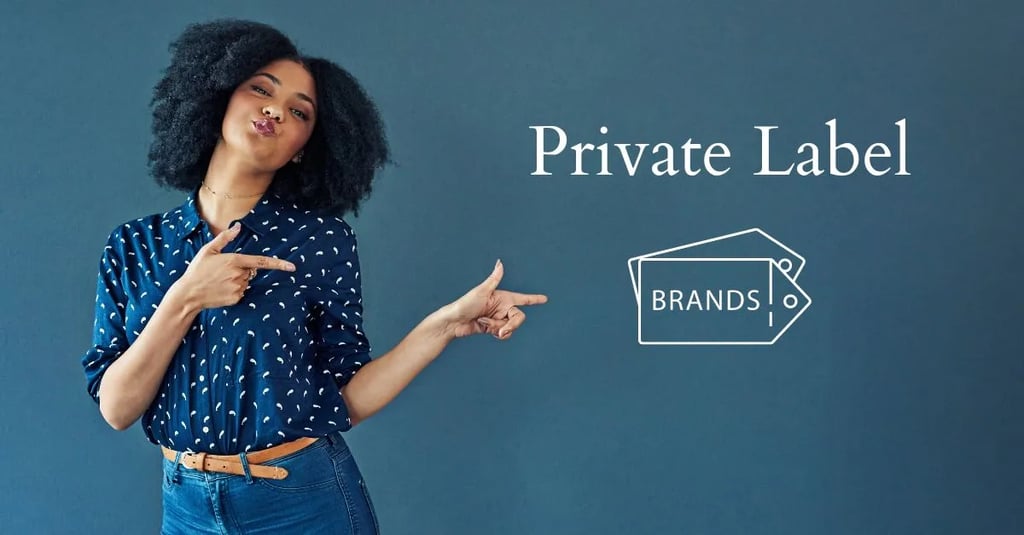What Are Private Label Brands?
What Are Private Label Brands? "Discover the definition and advantages of private label brands. Explore how these products offer unique benefits and cost savings compared to national brands.
PRIVAT LABELLATEST STORIES


The Rise Of The Private Label Brand: Quality And Value Beyond Name
Have you ever wanted to know, What is a private label brand? In today’s market, if you walk down the aisle in your favorite store, you might notice a growing trend: personal brands. These products, usually reserved for popular national brands, offer shoppers an exciting alternative. But what exactly are private label brands, and why are they becoming so popular?
What Is A Private Label Brand?
Private label brands, also known as store brands or own brands, are products manufactured by one company but sold under another company’s brand name, unlike national brands which typically invest heavily in retailer or distributor marketing and brand recognition , private label brands are big names Focus on providing quality products at competitive prices without the additional costs associated with advertising
The Interest Of Private Label Brands
1. Cost efficiency
One of the main reasons consumers are attracted to personal brands is their affordability. The elimination of extensive domestic inventory budgets allows retailers to offer these products at lower prices while maintaining comparable quality. This affordability is especially attractive in times of economic crisis or when consumers are very interested in finances.
2. Quality of Materials
Contrary to common misconceptions, private brands tend to follow strict quality standards. Vendors work closely with manufacturers to ensure these products meet or exceed expectations. Many private companies now proudly display certifications and quality assurance, giving customers peace of mind.
3. Variety of offerings
Private label brands extend beyond generic products. Today, you can find personalized label options in almost any category from groceries and home furnishings to electronics, clothing and specialty This category allows consumers to browse new products and discover when they are happy of banking.
4. The only products are innovations
Retailers use private label brands to differentiate themselves from competitors. These brands can offer unique features that are not available under national brands, creating a sense of exclusivity and customer loyalty. Additionally, marketers often use personal labels to introduce new products or to cater to specific consumer preferences.
Private Label Brands Evolution And Future
The private label brand landscape is evolving rapidly. What began as a basic, generic option has evolved into a dynamic market segment characterized by innovation and consumer consumption. Retailers are increasingly investing in product development, packaging design and marketing for their individual labels, aiming to compete or surpass national brands in terms of quality and quality it’s in a happy mood
Looking ahead, experts predict that private consumer goods companies will continue to gain market share in a variety of industries. As consumer priorities shift towards price and quality, brands with a better mix of affordability and quality are likely as retailers prepare to trade and effective use of control by private manufacturing firms will succeed in this competitive environment.
Embracing The Choice
what are private label brands? In conclusion, the growth of personalization highlights a significant shift in consumer behavior and shopping patterns. In addition to the interest in cost savings, this brand demonstrates a commitment to quality, innovation and customer satisfaction. Whether you’re looking for everyday essentials or exploring new products, consider embracing the variety and value that personalized brands bring to your shopping experience.
Next time you are shopping, take a good look at the shelves around you. You just realize that sometimes you’ll find a better price and quality behind a label you weren’t expecting.
